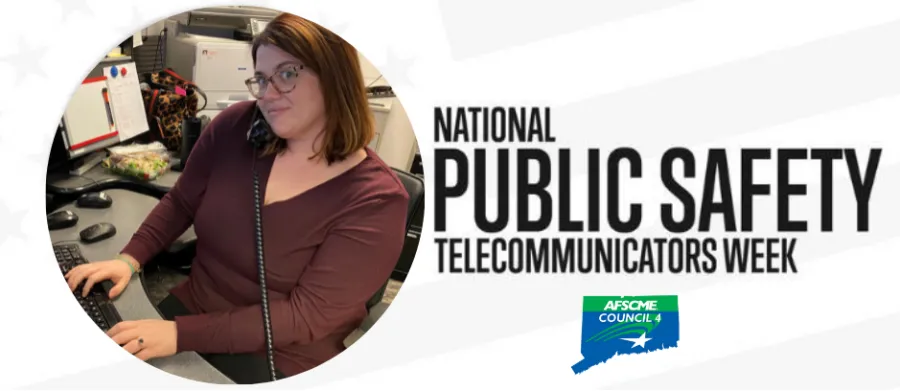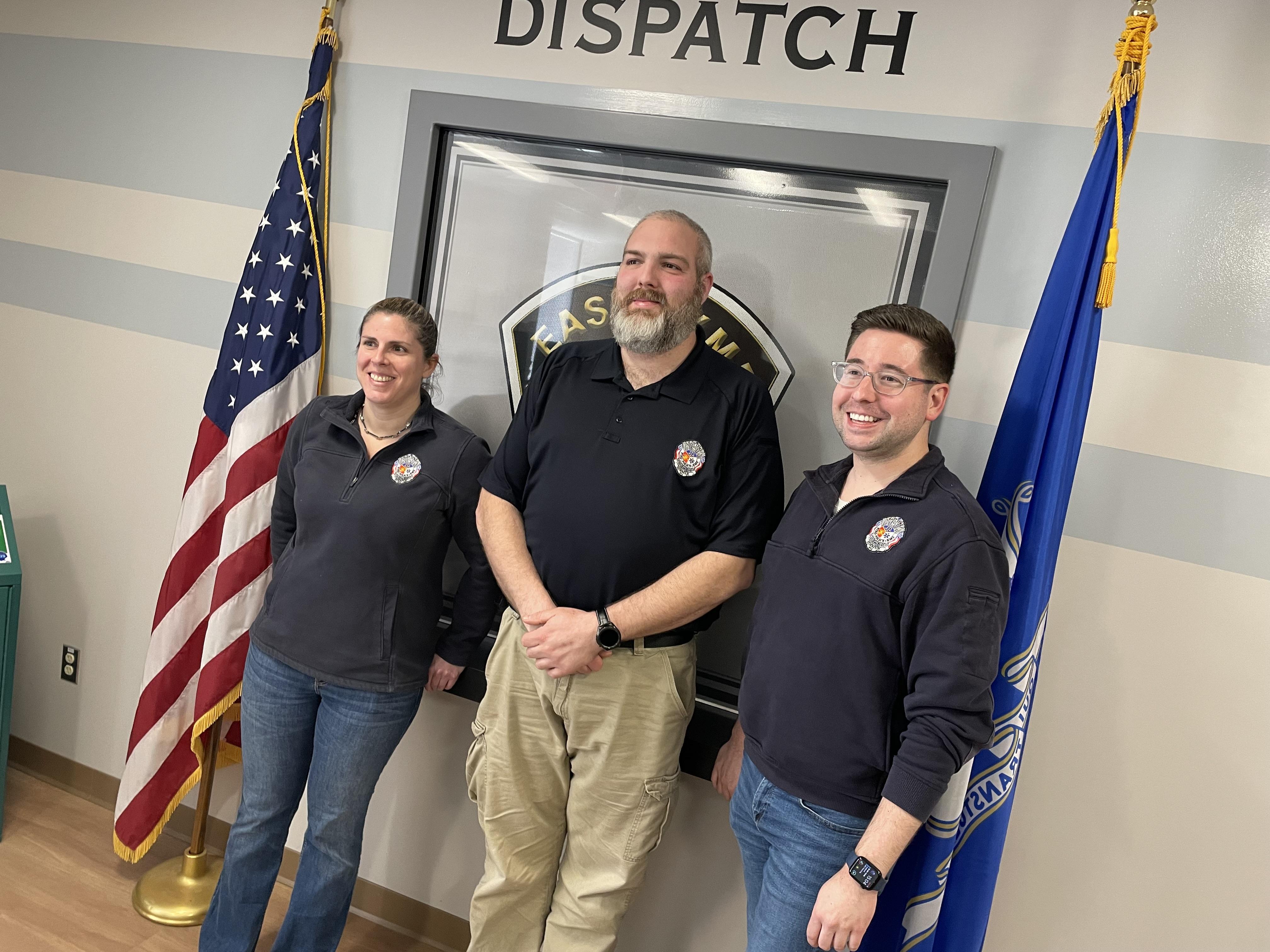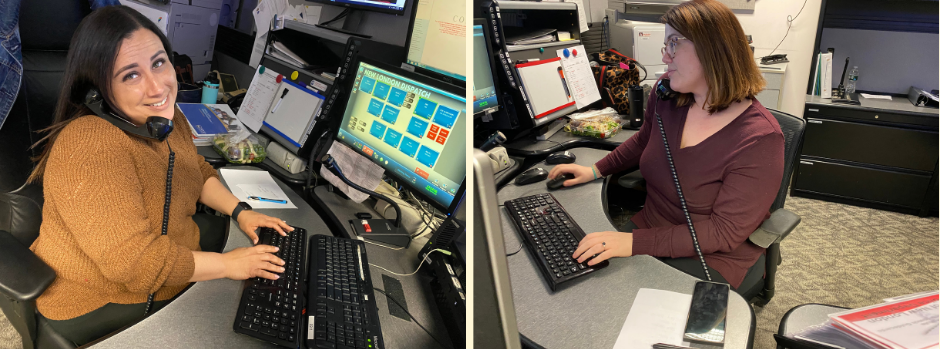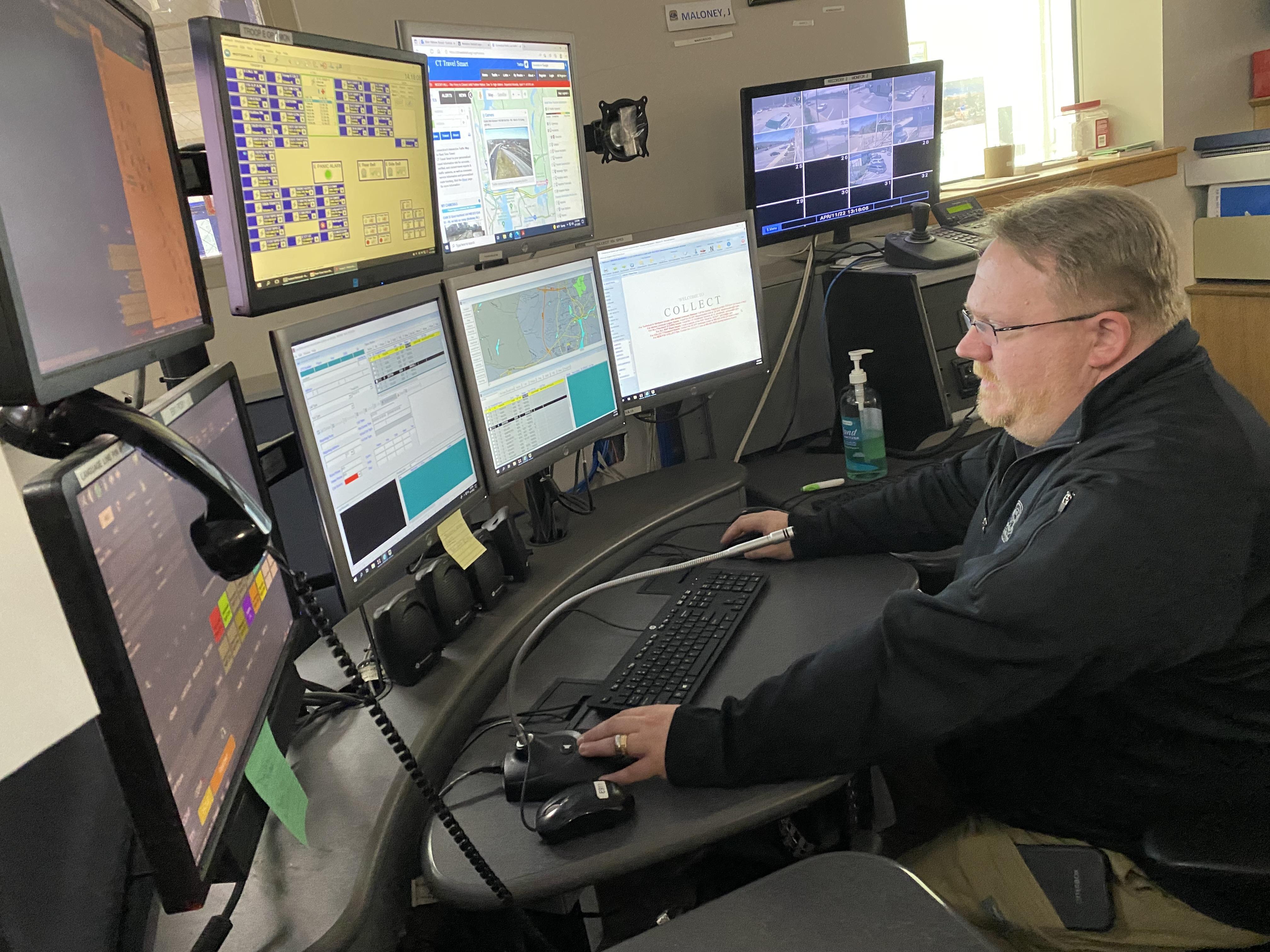Spotlight on dispatchers for Public Safety Telecommunicators Week

The week of April 10-16 celebrates the contributions of public safety telecommunicators — the dispatchers who operate 24/7 to coordinate police, fire and medical response to emergencies and community members who need assistance.
Public safety dispatchers have multi-faceted jobs. They answer routine and 911 calls, coordinate field response, assist personnel on scene with tasks like remotely accessing the Connecticut On-Line Law Enforcement Communications Teleprocessing (COLLECT) system, refer callers to community resources — all while staying calm.
The public safety dispatchers in East Lyme, members of AFSCME Local 1303-436, moved into a brand new building earlier this year that brought the dispatch center and police operations under one roof.
Now, with the dispatchers in a ground floor space that looks out into the lobby, the public can walk into the building and talk to somebody immediately, any time of day.
The dispatchers also can follow up with police officers on the outcome of calls, which is something that Local 1303-436 President Jess Dwire, a public safety dispatcher in East Lyme said gives them closure.
“If it's a tough call, we find out the outcome,” Dwire said earlier this week. “Did Mr. Smith make it? How’d that accident turn out? It's always good to know, to finally put that closure, that puzzle piece together, so that you're not just wondering.”

She said that it’s a benefit of working in a smaller town and having a good relationship with the fire, police and EMS field units.
The dispatchers in East Lyme also answer calls for the town’s Water and Sewer Utilities and sometimes help coordinate the Senior Center bus.
"Every call is different as much as it's routine," Dwire said, "because you never know what you're going to get or what kind of turn that can take."
East Lyme Police Sgt. Paul Renshaw, of AFSCME Local 2852, said dispatchers are “essential, and important part of the cog in the wheel” of police operations.
“We've worked hand in hand,” Renshaw said. “We have to rely on the dispatchers to obtain all the pertinent information when they take a call. We rely on them to communicate that to us, and then to do all the background work to provide us information so that we can do our jobs.”
Lifeline for responders
Just up the road from the rural community of East Lyme is the coastal city of New London.
Kerry Lynch, who has been a public safety dispatcher for about 10 years for the City of New London, is secretary of AFSCME Local 1378.
“We're the lifeline for the responders, and also for the caller sometimes,” Lynch said earlier this week. “People usually call here because they're having a bad day, so we owe it to them to be our best to be able to help them.”

She added that the job can be stressful, and it can be a challenge to show up no matter what's happening in their personal lives.
“We have to turn off our personal life when we come in, and then when we go home, turn off the work,” she said. “We have to have that separation, so that you're not carrying stress with you, but also so that you're not bringing personal stress to the job.”
New London Police Capt. Matthew Galante, a member of AFSCME Local 724 and the department’s public information officer, said that from a public safety standpoint, “we look at them as they are the first first responders.”
“It's understated how important their role is and how valuable they are to public safety,” Galante said. “Not only for law enforcement and fire personnel, but for the community in which we serve.”
State police dispatchers
The Connecticut State Police is a much larger agency than nearby municipal police departments and they respond to a wide scope of things — highway incidents, calls from state technical schools and prisons, calls for mutual aid for local police and fire departments.
State Police Troop E Sgt. Christopher Francis said that dispatchers play “a very vital role” in terms of the response that the public gets.
“Depending on the information they give, it puts us in the appropriate mode,” Francis said.

Russ Wehner is the lead dispatcher at Connecticut State Police Troop E headquarters in Montville.
Wehner, a member of AFSCME Local 610 (NP-3 bargaining unit), said that his job is a balancing act.
“We not only keep the person on the other end of the line together until we can get them the help that they need,” Wehner said, “but also getting our people there in a timely manner and giving them the information that they need to respond to it as adequately and safely as they can.”
He added that no matter what people are calling about, dispatchers always remember that even though the caller’s issue might not seem like a big deal, it could turn out to be their worst day.
“Whatever they're calling us about,” he said, “you have to remain calm. You have to remain composed.”
Support portal-to-portal coverage for dispatchers
Public safety dispatchers serve an integral role in emergency response, as their stories and testimony from police staff show.
House Bill 5251, which would provide dispatchers with portal-to-portal workers' compensation coverage, passed out of the Labor and Public Employees Committee this week and is on its way to the House Committee on Appropriations. Council 4 members Jake Troy of Local 1303-436 and Amit Patel of Local 610 testified on the bill.
This law would allow dispatchers to seek workers compensation if they are injured while commuting to meet a requirement — “portal-to-portal” meaning they would be covered while commuting to and from the dispatch center.
Click here to contact your representatives and show your support for dispatchers.
